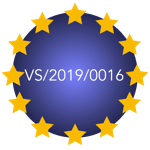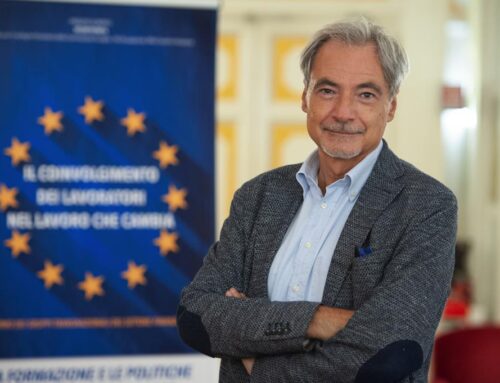TWO GOALS OF THE PROJECT TO BE ATTAINED WITH THE SUPPORT OF OUR EXTERNAL EXPERT PROF. FILIP DORSSEMONT
Goal II. Analyze the tools that relevant EU Directives provide to manage
4.0 processes and their effects on employees in finance industry and check the level of awareness and effective use of such tools within the participating EWCs.
Goal III. Check the level of effective implementation and compliance of such Directives in the various national contexts concerned by the transnational groups represented in the Project, in order to check the effectiveness of the LINK between the transnational and national levels as per article 12 of 2009/38 (“Fitness Check”).
Please find hereunder some examples of how we met the goal II. and III. above mentioned here:
A RELEVANT TOOL is to be found IN THE SUBSIDIARY REQUIREMENTS OF 2009/38 DIRECTIVE TO MANAGE 4.0 PROCESSES, so that any EWC
Agreement should explicitily include it:
ART. 1 a)
The information and consultation of the European Works Council shall relate in particular to the situation and probable trend of employment, investments, and substantial changes concerning organisation, introduction of new working methods or production processes, transfers of production, mergers,cut-backs or closures of undertakings, establishments or important parts thereof, and collective redundancies.
This is literally the most precise tool we have got in the 2009/38 to manage
4.0 changes in terms of information and consultation. We can find similar tools in the other Directives for the Employee Involvement (such as the 2002/14, the 98/59, the 2001/86), but this one is crucial of course for the EWCs.
Before getting to this very point, we were able to meet the above mentioned goals II. and III. with the decisive support of our external expert Prof. Dorssemont training and lessons.
Please find a number of relevant results in this respect hereunder.
They are here resumed in a number of sentences showing the core of the analysis we have made, after collecting the participants feedback about their level of awareness and effective use of the tools provided for by the concerned EU Directives:
#Employee involvement fundamentally means up to what extent the employees’ reps are able, or are enabled to influence the decision making process.#Employee involvement means that the opportunity to influence a decision has to be guaranteed by informing and consulting before taking the final decision.
#The right to be informed and consulted should turn into an obligation for the employer to inform and consult in case of restructuring process.
#The right to information and consultation is strictly connected to the right to be represented and to be an employee representative. This is not necessarily guaranteed everywhere in Europe. We have found relevant differences, depending on the actual unions’ strength in the various EU countries and on the national legislation about unions rights.
#Consultation and negotiation are well distinct, but both need the information to be given in a timely manner, or “in a good time” just to use the precise wording of the concerned Directives: the point is that this timely manner is not clearly defined in any Directive. On top of that the 2002 14 finalises the consultation to reaching an agreement.
#Art 27 Nice Chart does not say what the object of the consultation should be. Therefore when national laws do not provide for a clear right to be consulted about specific issues, the art.27 does not have any direct effect.
#Transnationality is another important weak point that should be defined in order to avoid that the Management turns transnational issues into national issues (when they are not as a matter of fact), in order to prevent its concerned EWC from being informed and consulted about them.
#Confidentiality should be restricted to third parties, can’t prevent from informing in a timely manner and to report back to the employees whom the individual EWC member represent in his/her own country
#Subsidiarity, subsidiary requirements: what can be done at a lower level, should be done at a lower level and what can be agreed between social partners should be agreed at their own level, without prescriptive rules. This is the win-win principle of the EWC and of its Directive i.e. to be a procedure to be put in practice through a free negotiation between the social partners.
Indeed only when such negotiation proves not to get to any agreement the Subsidiary Requirements should apply.




